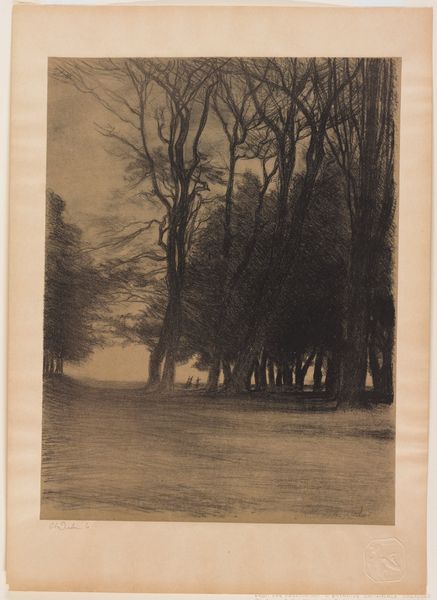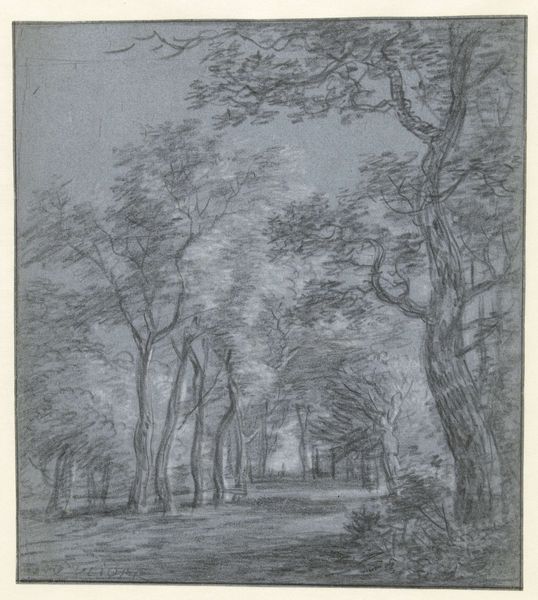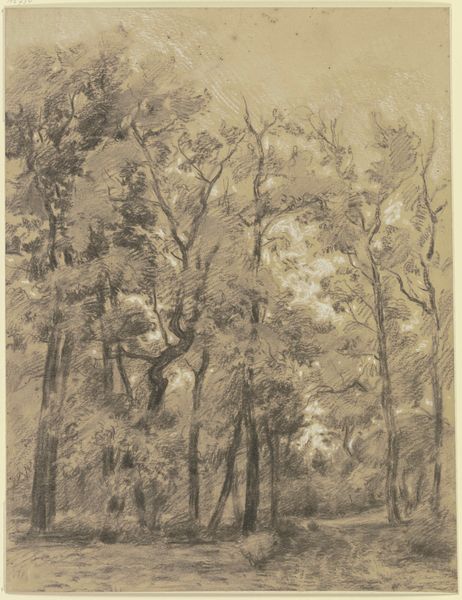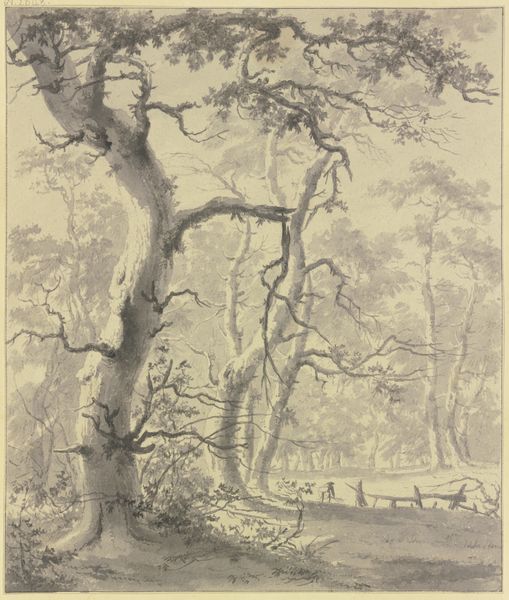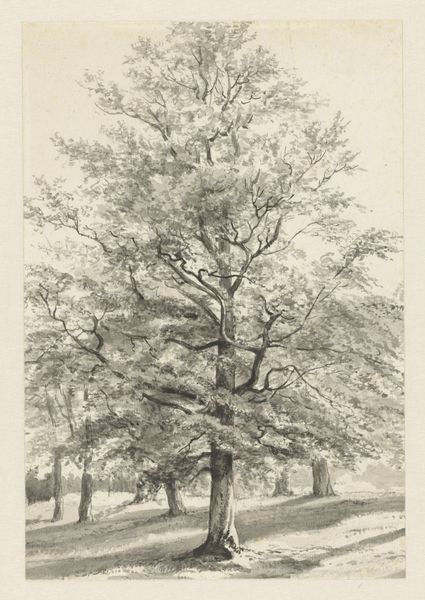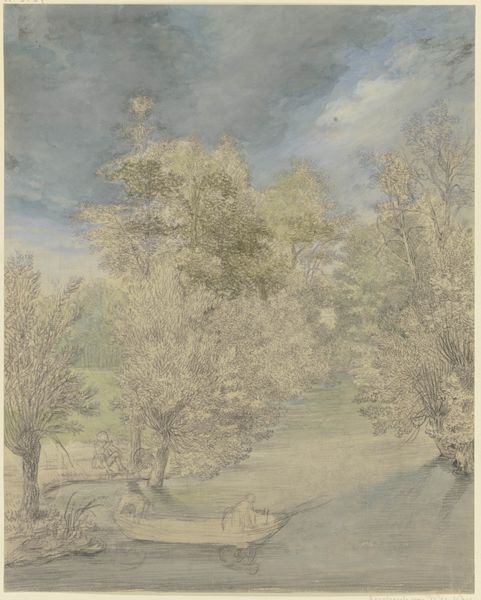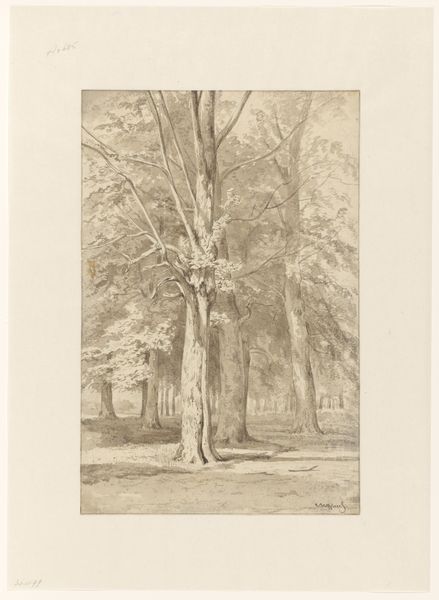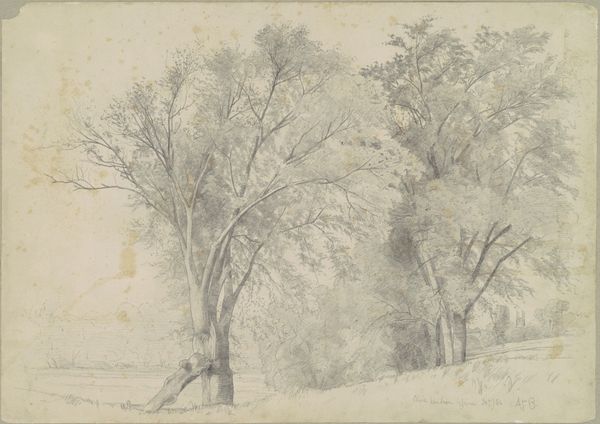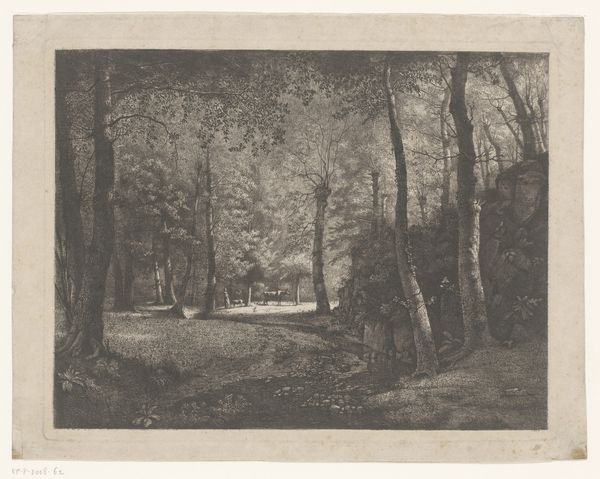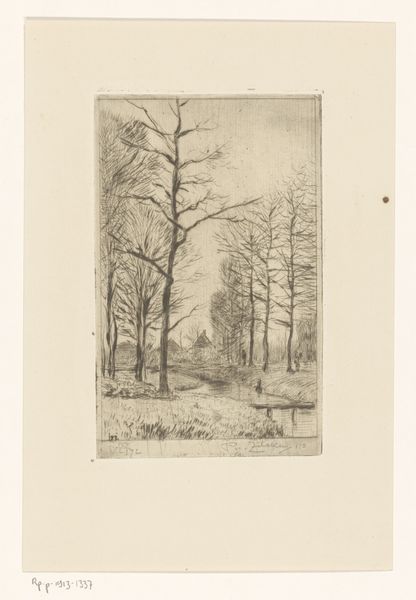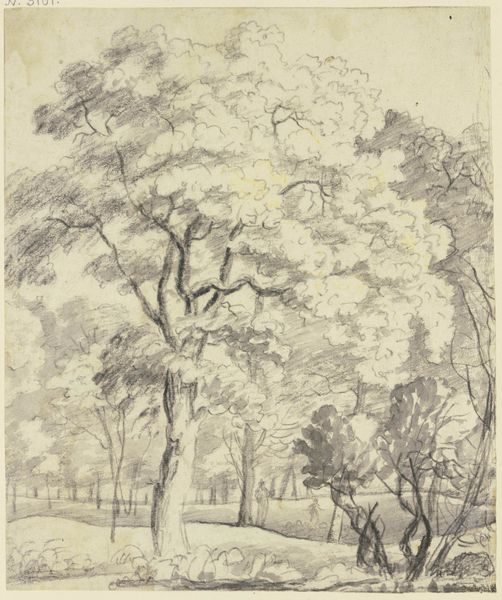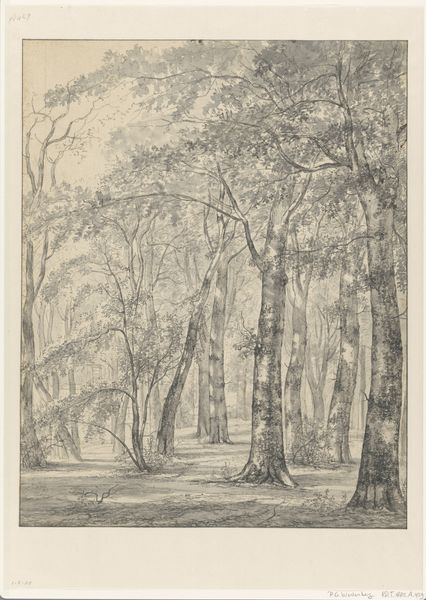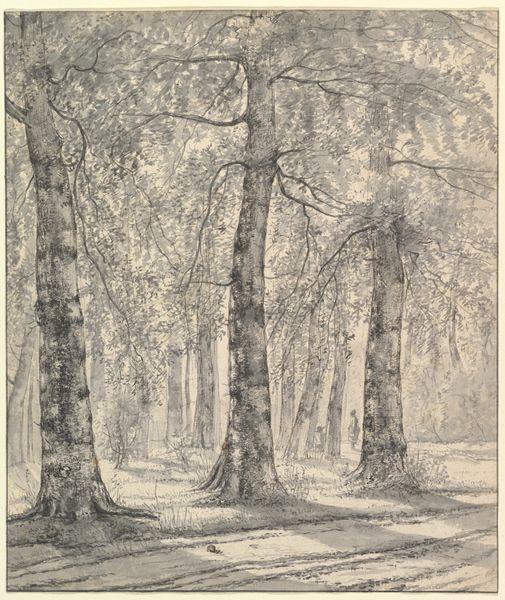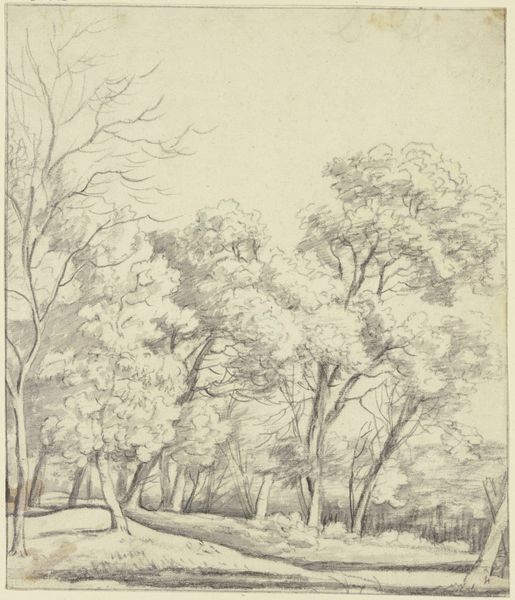
drawing, print, plein-air, paper, chalk, charcoal
#
drawing
# print
#
plein-air
#
landscape
#
charcoal drawing
#
paper
#
romanticism
#
chalk
#
charcoal
Dimensions: 602 × 471 mm
Copyright: Public Domain
Constant Troyon made this drawing, Edge of a Forest, with graphite and black chalk on tan paper, probably sometime in the mid-19th century. Troyon was part of the Barbizon School, artists who turned away from city life and academic painting towards direct observation of nature. These artists weren't simply painting pretty pictures. They were responding to profound shifts in French society. The rise of industrialization led to anxieties about the loss of rural life and traditions. Artists like Troyon helped to shape a romanticized vision of the countryside, one that served as a counterpoint to the increasingly urbanized world. To understand this drawing fully, we must investigate the cultural and economic forces at play in 19th-century France. Art historians consult agricultural records, literary sources, and exhibition reviews, piecing together the complex web of meanings that this seemingly simple landscape held for its original viewers. Ultimately, the value of this drawing lies not only in its aesthetic qualities but also in its role as a window into a specific moment in social history.
Comments
No comments
Be the first to comment and join the conversation on the ultimate creative platform.
